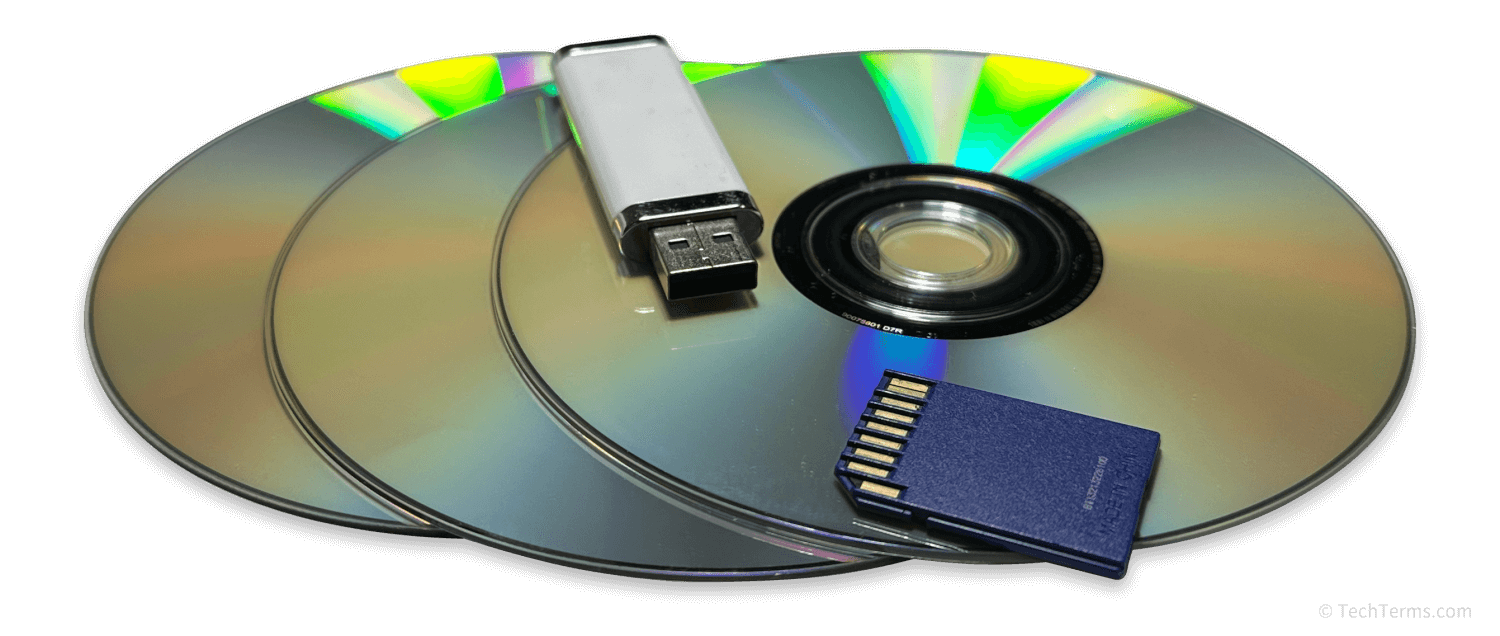Media
The word "media" has many uses in the context of computers and digital communication. It may refer to digital media content, like images and video, that has been published for broadcast or digital distribution. The collective noun "media" often refers to the companies that make and distribute digital media content. "Media" may also refer to digital storage media that stores and transports data.
Digital Media Content
The word "media," in the context of digital media content, refers broadly to digital images, audio, video, and text. More specifically, it refers to content created for publishing and wide distribution, either online or through other electronic methods. Songs saved as MP3 files are digital media, as are digital photographs and illustrations; a short story or essay published as a webpage is also digital media.
"Media files" is a catch-all term for music, movies, television shows, and other images, audio, and video files. A "media library" is an organized collection of media files, often collected into a database. "Media players" are software applications designed for the playback of digital media.
Storage Media
Digital storage media is anything that can electronically store digital data. Storage media can take several forms, including removable and non-removable types. The most common forms of storage media are:
- Magnetic media, like hard disks, floppy disks, and tape drives, save digital data by manipulating the medium's magnetic charge.
- Optical media, like CDs, DVDs, and Blu-ray discs, store digital data encoded in physical peaks and valleys, etched in the reflective underside of the disc and read by lasers.
- Solid-state media, like flash memory drives, store data in tiny cells called floating-gate transistors that can hold an electrical charge.
Each kind of storage media has its benefits. Hard drives are less expensive per gigabyte than solid-state flash memory but cannot read or write data nearly as quickly. Optical media is cheap and ideal for producing many copies of a read-only disc and is widely used to distribute movies and music. Flash memory is extremely fast and portable (since it has no moving parts), which makes it useful for removable storage devices like USB flash drives and SD memory cards.

 Test Your Knowledge
Test Your Knowledge